10 Words of Advice for Aspiring Conservationists (Part 2)
Following on from last weeks post, this blog will cover the final five “words of advice” I would offer to those seeking a career in the environmental field.
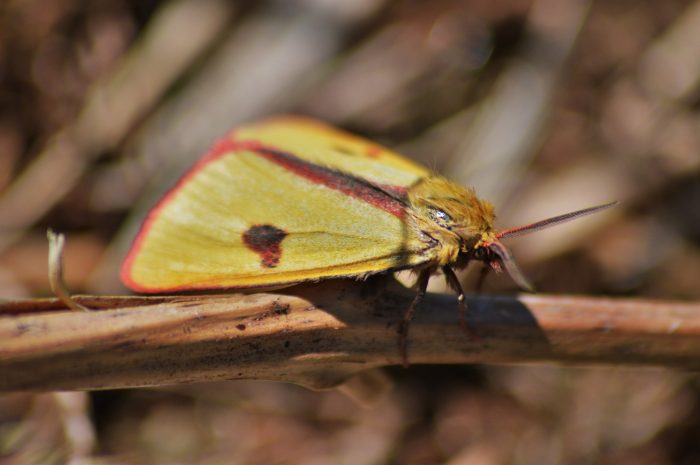 Image: James Common
Image: James Common Last week I posted with regards to aspiring conservationists; offering some advice towards those seeking a career in the environmental field. This proved somewhat popular and can be found elsewhere on Conservation Jobs for those interested. Following on from this, this post will cover the remaining points not included last week. For those who have commented that my last post was rather aggressive, I really must stress any gaffs are intended tongue-in-cheek. And that all views included here are not intended to insult anyone.
Read
This links in rather well to a few points mentioned in part one but deserves a place of its own nonetheless. Flicking through the Powerpoint slides from a recent lecture or half-halfheartedly scouring a scientific paper to help with a troublesome assignment is not near enough to provision you with the knowledge necessary to advance in conservation.
Reading is a key skill, and whether you favour journals, field guides, conference proceedings or indeed, creative nature writing – it is a great way to broaden your horizons. Through time spent engrossed in the pages of a book (or indeed, the virtual pages of an e-journal) you can find motivation, inspiration and learn an awful lot. You also show an interest outside of what you have been instructed, under duress, to do. Thus, making yourself look “passionate” and rather knowledgeable. The lack of students who read, outside of lessons, is scary. And while Wikipedia is fast becoming to go-to resource for all things informative, you still cannot beat a good book. Try dedicating a small amount of time each to quest for further learning…
Abandon The Monochrome Mindset
From an early age, nature lovers are actively encouraged to think in black and white. To view select groups of people, whether they be poachers, gamekeepers, developers, or farmers, as the metaphorical bad guys. Those people who, through their own “selfish” actions, inflict untold slights upon our beloved wildlife, on occasion.
Many progress to university and beyond still boasting this mindset. And while we do, from time to time, have to stand up to the aforementioned “bad guys”, it sometimes pays to be compassionate, or at least understanding, as to the plight and requirements of others. In many cases, very little is achieved through antagonizing people you view as the enemy, and often, you will have to compromise and work towards a solution that benefits both man and beast. The ability to engage with and talk to those of an opposing view is an essential skill in conservation, particularly when trying to persuade someone to stop a action or commit to a particular scheme. And reasoned debate has a habit of bearing fruit where counterproductive slanging matches do not. Stand by your guns, but please be willing to engage productively with those of contrasting mindsets. We conservationists are a minority in modern society after all and cannot fight on all fronts.
Anyways, most of us, at one stage or another, will find ourselves working alongside these people from time to time, thus it pays to be civil. And not to shoot yourself in the foot (or pockets) before even starting.
Think Critically
Critical thought is one of those things every self-respecting lecturer, professor, and teacher drums into their students from an early age. It is an important skill in most jobs, and about as vital as they come in the environmental field. The ability to not take research, press releases or other forms of information at face value, and to question, internally, every from the findings of scientific reports and survey methodologies to legislative decisions. People are often disingenuous, even in conservation, and even the best of us are prone to telling the odd porky to achieve our individual goals or back up an opinion. It pays to be cautious.
No matter what you are reading, or who you are talking to, approach the issue absent bias – listen to what is said and think about how you could do it better. Question the motivations of said people, ask questions and critique. The only way to improve on existing knowledge is to identify flaws and work to rectify them. Do you know of a better way to gain data on a certain topic? Work on it, accepting the status quo in conservation is a sure-fire way to achieve nothing. And sometimes it pays to take a risk, think big and challenge the big wigs in your field. But please, bare in mind the fine line between critical interest and being a pain. No one likes a know-it-all.
Conservation Is Not Rosy
If you think a career in conservation consists of little more than frolicking blissfully in the woods or hugging fluffy animals, then the chances are, it is not for you. Many, many people seem to lump conservationists and animal rights activists, but while ethics are, of course, rather important, conservation often involves a great deal of seemingly brutal acts. Acts which, while distasteful, ultimately work to the betterment of the natural world. We shoot species to protect others, trap invasive species, orchestrate exterminations and much more. This may disillusion some, but in our current turbulent times, killing is part of conservation. Whether we like it or not. And whether you are working abroad, trapping rats on a far-flung island or exterminating Cane Toads, or at home, shooting Grey Squirrels or deer, it pays to think objectively at all times. And not to throw a tantrum when asked to do something that goes against your better nature – most of the time at least, it really is for the greater good.
Also (and I have, believe it or not, encountered this) if you are afraid to get wet, dirty or otherwise, the chances are, a job in the field is not for you. There is a reason most successful conservationists spend 99% of their time looking dreadful…
Have Fun
Despite the at times grievous, soul-crushing lows, conservation is one of the most enjoyable, heart-warming, and generally amazing careers around. It is fun, plain and simple. And one of only a select few jobs where you can say, without a doubt, that you have contributed to an important cause. It is a career of soaring highs – as you watch creatures thrive as a result of our dedicated work – and resounding successes. As we stamp out the evils that imperil the creatures we hold dear. It is educational, each and every day providing something new, uplifting and rewarding. You will see amazing things, witness spectacles few others could possibly dream of and reap the rewards of a life in the outdoors. It is well worth the effort, once you get past the frustration, anger and perpetual bouts of hopelessness. I really would advise everyone interested to commit.

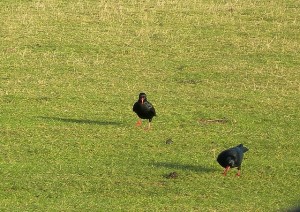
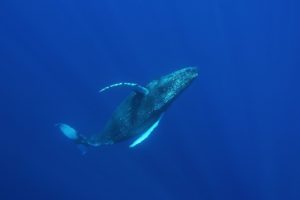
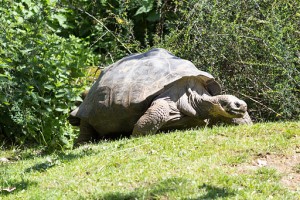
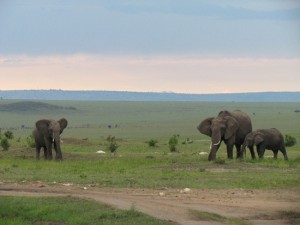
No comments yet.